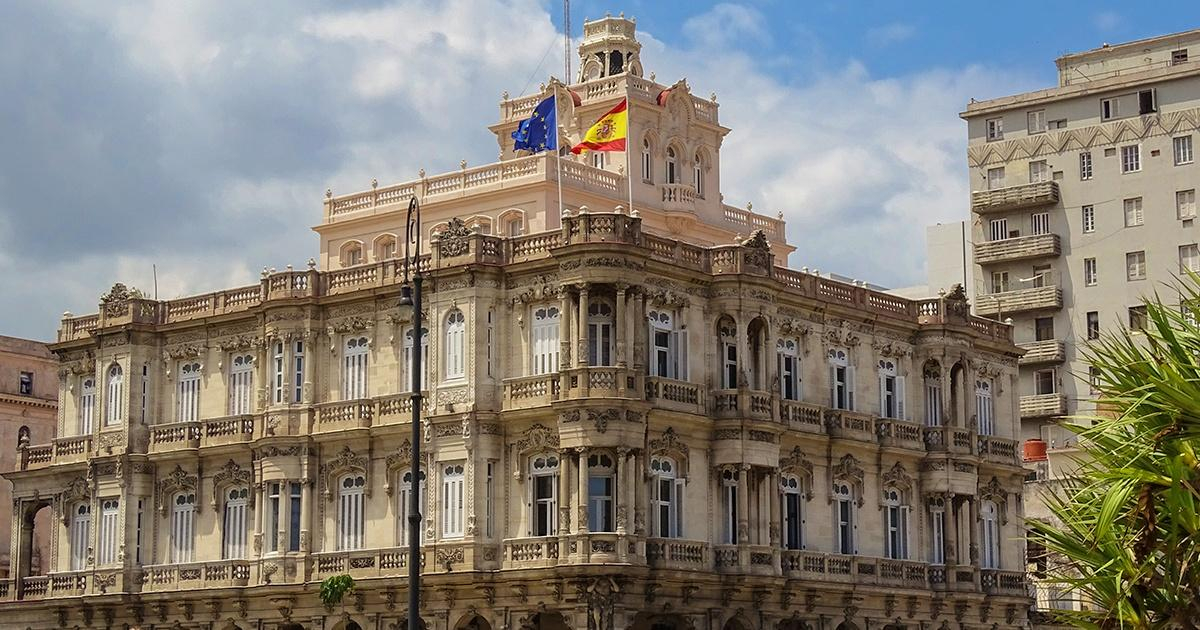
The Consulate of Spain in Cuba will not carry out any type of procedure or offer clarifications to those interested in benefiting from the Democratic Memory Law to obtain Spanish citizenship.since this is a bill that has not yet received approval from Parliament.
“Democratic Memory Law: It is reported that the bill has been sent to Parliament. It is NOT yet a legal text in force. No type of communications in relation to the parliamentary process will be answered. Nor appointments or documentation,” reported the Spanish consular office in Havana.
The Spanish Government approved this Wednesday to send to Parliament the draft Democratic Memory Law, which provides for two other new ways to acquire Spanish nationality, according to the Executive on its website.
If approved by the legislators, the children of Spanish women who lost it when marrying abroad before 1978 will be able to apply for nationality, as well as the adult children of Spaniards whose citizenship of origin was recognized by right. of option.
Regarding this last assumption, the Minister of the Presidency, Félix Bolaños García, clarified that the law currently in force “only affected minor children” and with the proposed modification it would open “the possibility to children of legal age on that date.”
Both assumptions, added to the draft Law, are those that directly affect Cubans of Spanish descent. The rest of the draft presented to the Cortes focuses on what Bolaños calls “recovery, safeguarding and dissemination of democratic values.”
The text that will reach the Spanish Congress of Deputies is a version "improved with reports" of the one presented in September 2020 between PSOE (socialists) and Unidas Podemos (communists), indicated the minister.
This is an update of the current Historical Memory Law of 2007, known in Cuba as the “Grandchildren Law.” If it passes the parliamentary process, the now called Democratic Memory Law seems to have a short life, according to polls that give a majority to the PP (conservatives) in the elections in 2 years. Its leader, Pablo Casado, told ABC newspaper this Tuesday that, if elected, he will repeal it and instead approve the Concordia Law.
“In essence, the future Democratic Memory Law seeks to recognize all the victims of the coup d'état of July 1936 and the Franco dictatorship. With the new rule, the State will be responsible for searching for the missing and recovering their remains, an issue that has agitated the political debate in Spain since the government of the socialist José Luis Rodríguez Zapatero, under whose presidency the so-called Law of Historical Memory was approved. .
Likewise, the draft Democratic Memory Law clarifies that there will be no compensation for the victims of Franco's regime, but there will be an audit of the assets plundered by the dictatorship for political or ideological reasons.
Furthermore, the regulations contemplate the possibility of being able to extinguish associations or foundations that exalt the dictatorship or Francoism, which would directly affect the Francisco Franco Foundation.
It is estimated that 150 thousand Spaniards or descendants of Spaniards reside in Cuba, while in Spain on January 1, 2021 there were 61,589 Cubans with legal residence. In total there are 160,853 residents in Spain of Cuban origin (2020).
The possibility opened by the new Law, if the draft bill is approved in Congress, could benefit thousands of Cubans who could benefit from the new cases of acquiring Spanish nationality.
At a time when the crisis that the island is going through is worsening, the Spanish consular authorities in Havana suspect that the expectations of Cubans in relation to this Law may be high, which would lead to an increase in the number of consultations and procedures related to it. However, at the moment, they warn: “it is not a legal text in force.”
What do you think?
COMMENTFiled in: